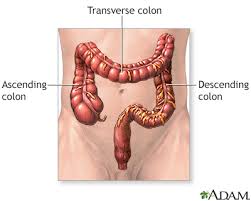
Large Bowel Surgery
Large bowel surgery involves the removal or repair of a section of the colon or rectum to treat conditions such as cancer, diverticulitis, or inflammatory bowel disease.
Large Bowel Surgery; Overview
This procedure helps restore normal bowel function, alleviate symptoms, and prevent serious complications


What is Large Bowel Surgery?
Large bowel surgery, also known as colon or colorectal surgery, involves the removal, repair, or resection of parts of the colon or rectum to treat various medical conditions. These conditions may include colorectal cancer, diverticulitis, inflammatory bowel disease (such as Crohn's disease or ulcerative colitis), bowel obstruction, or severe gastrointestinal bleeding.
Types of Large Bowel Surgery;
1. Colectomy
The removal of part or all of the colon.
Can be partial (only a segment of the colon is removed) or total (entire colon is removed).
Includes laparoscopic or robotic-assisted techniques for smaller incisions, quicker recovery, and reduced post-operative pain.
2. Proctocolectomy
3. Colostomy or Ileostomy Creation
Removal of both the colon and rectum, often performed in cases of severe inflammatory bowel disease or cancer.
5. Minimally Invasive Surgery
In cases where the bowel cannot be reconnected, an opening (stoma) is created in the abdomen to divert waste into a colostomy or ileostomy bag.
4. Polypectomy
Removal of polyps during a colonoscopy, often used for early-stage issues.
Calculate your BMI
and write us the result...
If your BMI is over 30, contact us immediately, as it indicates you may be at risk due to excess weight.
Istanbul Bariatric
Transform your life with our expert services.
Contacts
© 2024. All rights reserved.
